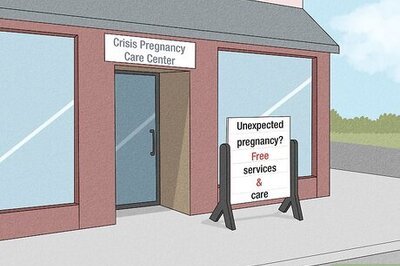
views
LONDON: The Bank of England has discussed using yield curve control in its search for new ways of boosting its firepower, but there is little need for it at the moment, Governor Andrew Bailey said on Thursday.
With interest rates near zero and doubt surrounding the effectiveness of yet more bond-buying by the central bank, the BoE has been reviewing unorthodox policies such as negative interest rates – and now controlling the yield curve, too.
Already used in Japan and Australia, yield curve control means central banks try to cap government bond yields at levels they think will help the economy and meet their inflation target.
Because government bond yields are used as benchmarks for business and consumer lending, in theory controlling them can help to influence the price of credit in the broader economy.
“We have talked about yield curve control because frankly in the current environment, we’re talking about all the tools that could possibly be in the box,” Bailey told the Financial Times’ Global Boardroom event.
In June, Bailey said that yield curve control had not been discussed by members of the Monetary Policy Committee.
The BoE already has huge sway in Britain’s government bond market through its 895 billion-pound quantitative easing programme, almost all of it comprising gilts.
Bailey said its asset purchases predominantly affected longer-dated debt while yield curve control was typically used for shorter-term debt.
“I must say at the moment if you look at the situation in the UK, there isn’t a great call, I think at the moment, for doing more yield curve control at the short end,” Bailey said, referring to the fact that interest rates on short-dated British government bonds are already low and fairly stable.
“So I don’t think it’s something that I would see frankly a great need for at the moment.”
The BoE is also consulting with banks over how negative interest rates might be implemented in Britain if necessary.
“I don’t have a precise date in mind,” Bailey said on when the findings of the BoE’s consultation would be published.
“There’s a great deal of work we have to do with the banks, particularly to work out what’s doable and what needs to be fixed.”
Disclaimer: This post has been auto-published from an agency feed without any modifications to the text and has not been reviewed by an editor
Read all the Latest News, Breaking News and Coronavirus News here













Comments
0 comment